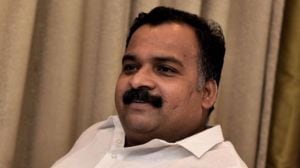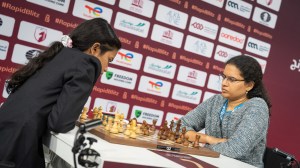Your Q, His A
Rajiv K. Luthra is the founder and senior partner of Luthra and Luthra Law Offices. This column provides general observations on applicable...

Rajiv K. Luthra is the founder and senior partner of Luthra and Luthra Law Offices. This column provides general observations on applicable laws. Due to paucity of space, it does not and cannot substitute legal advice specific to an issue. Readers are requested to consult their lawyer for specific legal problems. The author and publisher shall not be responsible in case any damage or loss is caused to any person as a result of any action taken on the basis of the opinion expressed here. Readers can send their questions to luthraluthra.com
8226; I am a Dutch citizen of Indian origin living in the Netherlands. I was born in Pune, India, at the Military Hospital, and my birth was recorded at the offices of Pune Cantonment8217;s Birth 038; Death Registrar as daughter of Major and Urmil Kahol 8212; there was no name mentioned in the Birth Register. In 1997 at the request of a friend of mine and a letter from the Military Hospital, an extract of my birth certificate was sent to me by post, but this did not mention my first name on it. In 2002 at the request of another friend I tried to get a certificate with my name on it. This was then inserted by the Chief Executive Registrar of Births and Death. He said that he had this power as my birth was already registered without name since 9 September 1965. I would like to clarify with you the following: first, is it within the power of the Registrar of Births and Deaths to insert a first name on a Birth Register without obtaining an order from the SDM? Secondly, in the state of Maharashtra, is it possible to insert the first name at all after 15 years, even on the strength of a Class X certificate and other supporting documents submitted by parents?
Sunita Kahol
Section 14 of the Registration of Births and Deaths Act, 1969, states that where the birth of any child has been registered without a name, the parent or guardian of such child shall within the prescribed period give information regarding the name of the child to the Registrar either orally or in writing and thereupon the Registrar shall enter such name in the register and initial and date the entry. The period within which the name of the child can be entered in the register is to be prescribed by rules to be made by the State Government.
The Maharashtra Registration of Births and Deaths Rules, 2000 state that where the birth of a child has been registered without a name, the parent or guardian of the child should inform the Registrar of the name of the child within twelve months of the date of registration, or up to fifteen years from the date of registration, with a late fee of five rupees. The aforesaid Act and Rules do not have any provision for the addition of the name of a child in the birth certificate beyond such period of 15 years. However, the authorities in many countries accept an affidavit from the parents regarding the first name and date of birth, where the first name is not mentioned on the birth certificate. It might be advisable to approach the Dutch authorities to confirm whether such an affidavit would be acceptable in the Netherlands.
8226; In Hindu law, what is the right of an illegitimate child in his/her parent8217;s property? The various apex courts in their verdicts under Section 16 of the Hindu Marriage Act, have protected the rights of an illegitimate child to his/her parent8217;s property. In such a case can a father dispose of his self-acquired property as he pleases? Also, can he make a will in which he does not allot a due share to his illegitimate child? What is the procedure under law to protect an illegitimate child8217;s rights in the property as stated by the apex courts, since his/her mother is not given such a right?
Anonymous
Section 16 of the Hindu Marriage Act provides that where a marriage is null and void or is voidable and is declared a nullity, children born of such a marriage who would have been legitimate except for the fact of such nullity, shall be legitimate. The effect of this provision is to ensure that the mere fact of nullity of a marriage or the declaration of nullity of a voidable marriage do not make a child illegitimate. However, this section cannot give such children a right to any property other than the property of the parents.
Further, a person can dispose of self-acquired property as he wishes during his lifetime, and determine its disposition after his death, by making a will. If there is a valid will, the terms of the will govern the disposition of the property. Where there is no will, the disposition of the property is governed by the law of succession 8212; in this case, the Hindu Succession Act. A child who is legitimate de to the operation of Section 16 of the Hindu Marriage Act would, in such a case, inherit the property of the parents in the same manner as a legitimate child.
8226; What is the legal validity of a recording done by a common man of another without latter knowledge? Does such recording carry any weight in Court? Can the person recording another statement be held guilty of fraudulent behaviour, cheating or intended blackmail?
Maneesh Rathi
Tape-recorded conversation is admissible as evidence provided the conversation is relevant to the matters in issue, there is identification of the voices, and the accuracy of the recording is proved by eliminating the possibility of erasing the record. Tape recordings can be used to corroborate the statement of a person who deposes that the conversation has taken place. Tape-recordings can be used not only to corroborate evidence given by a witness in Court but also to contradict evidence before the Court and to test the veracity of a witness.
Merely recording a conversation without the knowledge of the parties is not a crime. Fraud and cheating are crimes that are specific to property, and therefore, unless the tape-recording has led to fraudulent deprivation of property, there is no crime.
- 01
- 02
- 03
- 04
- 05































